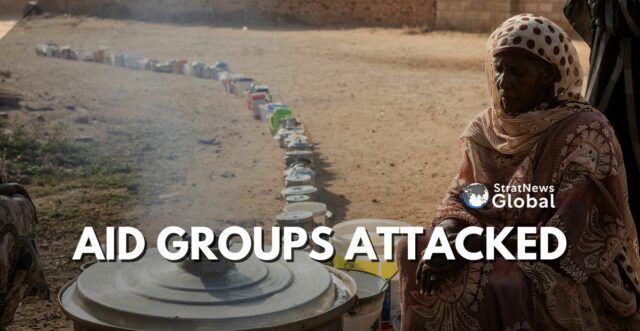Local volunteers who have helped to feed Sudan’s most destitute during 17 months of war say attacks against them by the opposing sides are making it difficult to provide life-saving aid amid the world’s biggest hunger crisis.
Many volunteers have fled under threat of arrest or violence, and communal kitchens they set up in a country where hundreds are estimated to be dying of starvation and hunger-related diseases each day have stopped serving meals for weeks at a time.
Arrests And Looting Hinder Sudan’s Community Kitchens
Reuters spoke with 24 volunteers managing kitchens in Khartoum, Darfur, and eastern Sudan, where millions have been displaced by fighting between the army and the Rapid Support Forces (RSF).
International humanitarian agencies, unable to deliver food aid to famine-risk areas, have increased support for these groups, making them more vulnerable to RSF looters, according to 10 volunteers.
Both sides have also attacked or detained volunteers on suspicion of collaborating with their opponents, a dozen volunteers said.
Volunteers report that RSF troops have stolen phones and cash intended for food, conducted nighttime raids on kitchens, and stolen supplies. One volunteer was even tortured to reveal the source of the group’s funding.
The frequency of such incidents increased as international funding for communal kitchens picked up heading into the summer, according to eight volunteers from Khartoum state, which is mostly controlled by the RSF.
Groups that run kitchens there have announced the deaths of at least three volunteers in armed attacks, including one they said was shot and killed by RSF troops in Khartoum’s Shajarah neighbourhood in September.
Over Half Of Sudan’s Population Faces Acute Hunger
U.N. officials report that over half of Sudan’s population—25.6 million people—are facing acute hunger and urgently need assistance. In the worst-affected areas, residents displaced by conflict are resorting to eating dirt and leaves.
Local volunteers established hundreds of kitchens early in the war, providing hot meals once or twice daily. However, soaring food prices and dwindling private donations have forced some to close or limit services to as few as five times a month.
In North Darfur, a group running kitchens in a camp for half a million displaced people has repeatedly had to halt meal service due to insufficient funds. A global authority on hunger crises noted in August that the conflict and restrictions on aid have led to famine in the Zamzam camp.
Historical Context
Many communal kitchens are operated by a loose network of community groups known as emergency response rooms, which have tried to sustain basic services, such as water and power, and distribute food and medical supplies.
Both the army and RSF distrust these groups, in part because they include people who were members of grassroots “resistance committees” that led pro-democracy protests during the uprising that toppled former autocrat Omar al-Bashir in 2019. The volunteers who spoke to Reuters said the objectives of the emergency response rooms are purely humanitarian.
The army joined forces with the RSF to derail the political transition that followed Bashir’s ouster by staging a military coup two years later, but rivalries between them erupted into open warfare in April 2023.
Marauding Troops
In the worst-hit areas, local volunteers said they were now being targeted weekly or every few days by marauding troops, compared to roughly once a month earlier in the year.
In areas where the army retains control, six volunteers described arrests and surveillance that they said drove away people who had helped run kitchens, reducing their capacity to operate.
A U.N. fact-finding mission found that, of 65 cases tried by army-convened courts against alleged RSF members as of June, 63 targeted activists and humanitarian workers, including those from emergency response rooms.
Relief workers report that both sides have employed siege-like tactics to block food and supplies from reaching their opponents, with the RSF and allied militias looting aid hubs and harvesting crops.
Donor Reticence
As hunger spreads, emergency response rooms have set up 419 kitchens that aim to serve over 1 million people daily in Khartoum state alone, said Abdallah Gamar, a state organiser. But volunteers have struggled to secure the $1,175,000 needed every month. In September, they received around $614,000, Gamar told Reuters.
In the beginning, most of their support came from the Sudanese diaspora, but the resources of these donors have been depleted, Gamar said.
Aid workers said many foreign donors hesitated to fund kitchens because the groups running them are not registered with the government and often use personal bank accounts.
Some donors are now working through registered intermediaries to get funding to communal kitchens.
Volunteers welcomed the support but said it can take weeks for money to filter down to kitchens through intermediaries. Cumbersome reporting requirements add to the delays, they said.
Further Challenges
The arrival of the rainy season over the summer brought flash floods and a heightened risk of deadly diseases such as cholera and malaria, stretching resources even thinner, volunteers said.
Sudan’s currency has fallen around 300% against the dollar on the parallel market during the war, and food prices have risen by almost as much, according to WFP surveys.
(With input from Reuters)





